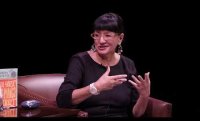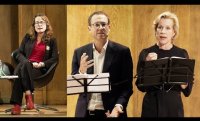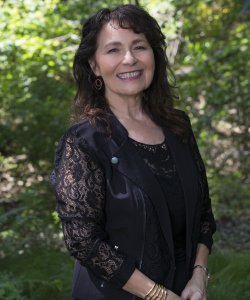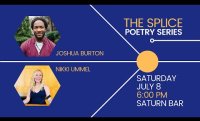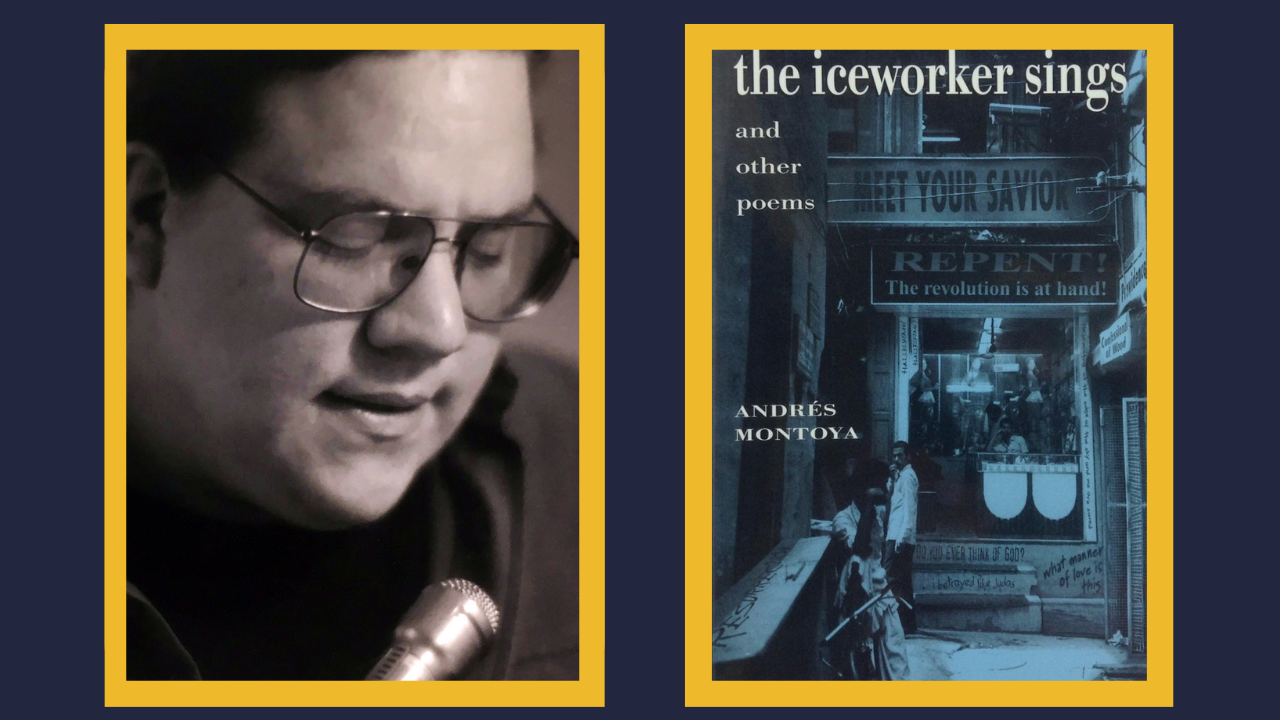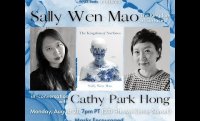While you’re hibernating through subzero temperatures, why not try your luck with over a dozen contests offering publication, money, travel, and even mentorship? Prizes include $5,000 and publication in Chautauqua for a work of fiction or nonfiction by an emerging writer who displays “daring formal and aesthetic innovations,” fellowships of up to $2,000 to support feminist fiction writers, and $1,500 along with a virtual five-month mentorship program for emerging poets, fiction writers, and creative nonfiction writers “from communities that are traditionally underrepresented in the publishing world.” Stay warm, folks, and send out your work!
Arts + Literature Laboratory
Edna Meudt Poetry Book Award
A prize of $1,000 will be given annually for a poetry collection published in the previous year by a writer who is a resident of Wisconsin (or who previously resided in Wisconsin for at least five years). The winner will also receive a five-day stay at Shake Rag Alley Center for the Arts in Mineral Point, Wisconsin. Gabrielle Bates will judge. Entry fee: $30.
Arts + Literature Laboratory
Edna Ferber Fiction Book Award
A prize of $1,000 will be given annually for a book of fiction published in the previous year by a writer who is a resident of Wisconsin (or who previously resided in Wisconsin for at least five years). The winner will also receive a five-day stay at Shake Rag Alley Center for the Arts in Mineral Point, Wisconsin. Alison Stine will judge. Entry fee: $30.
Arts + Literature Laboratory
Norbert Blei/August Derleth Nonfiction Book Award
A prize of $1,000 will be given annually for a book of nonfiction (including creative nonfiction) published in the previous year by a writer who is a resident of Wisconsin (or who previously resided in Wisconsin for at least five years). The winner will also receive a five-day stay at Shake Rag Alley Center for the Arts in Mineral Point, Wisconsin. Sonya Huber will judge. Entry fee: $30.
Black Lawrence Press
Big Moose Prize
A prize of $1,000, publication by Black Lawrence Press, and 10 author copies is given annually for a novel. The contest is open to traditional novels as well as “novels-in-stories, novels-in-poems, and other hybrid forms that contain within them the spirit of a novel.” The editors will judge. Entry fee: $28.
Chautauqua Institution
Chautauqua Janus Prize
A prize of $5,000 and publication in Chautauqua is given annually for a single work of fiction or nonfiction by an emerging writer displaying “daring formal and aesthetic innovations that upset and reorder readers’ imaginations.” The winner also receives a $2,000 travel and lodging stipend to give a lecture at the Chautauqua Institution in summer 2024. Writers who have not published a book of over 15,000 words in any prose genre are eligible. Submissions may consist of unpublished work or work published no earlier than April 2023. Jimin Han will judge. Entry fee: $20.
Ghost Story
Screw Turn Flash Fiction Competition
A prize of $1,000 and publication on the Ghost Story website and in the 21st Century Ghost Stories anthology is given biannually for a work of flash fiction with a supernatural or magical realist theme. The editors will judge. Entry fee: $15.
Inlandia Institute
Eliud Martínez Prize
A prize of $1,000 and publication by Inlandia Books is given annually for a book of fiction or creative nonfiction by a writer who identifies as Hispanic, Latino/a/e/x, or Chicana/o/e/x. Manuscripts must be written primarily in English. Fee waivers are available upon request. Entry fee: $15.
Iowa Review
Iowa Review Awards
Three prizes of $1,500 each and publication in Iowa Review are given annually for works of poetry, fiction, and creative nonfiction. All entries are considered for publication. Entry fee: $20.
Money for Women/Barbara Deming Memorial Fund
Individual Artist Grants for Women
Grants of up to $2,000 each are given in alternating years to feminist poets, fiction writers, and nonfiction writers who are citizens of the United States or Canada. This year grants will be awarded to fiction writers. English translations of works originally written in another language are accepted. A limited number of fee waivers are available upon request. Entry fee: $25.
New Millennium Writings
New Millennium Writing Awards
Four prizes of $1,000 each and publication in New Millennium Writings in print and online are given biannually for a single poem, a short story, a work of flash fiction, and a work of creative nonfiction. Previously unpublished works or works that have either appeared in a journal with a circulation under 5,000 or have been published only online are eligible. The editors will judge. Entry fee: $20.
PEN America
Emerging Voices Fellowship
Twelve fellowships of $1,500 each and participation in a virtual five-month mentorship program, which includes one-on-one mentorship with an established writer; introductions to editors, agents, and publishers; a professional headshot; and a one-year PEN America membership, are given annually to emerging poets, fiction writers, and creative nonfiction writers “from communities that are traditionally underrepresented in the publishing world.” Fellows also participate in workshops on editing, marketing, and building a professional platform. Writers who have not yet published a book and who do not hold an advanced degree in creative writing are eligible. Entry fee: $25.
Poetry Northwest
James Welch Prize for Indigenous Poets
Two prizes of $1,000 each and publication in Poetry Northwest are given annually for a single poem by an Indigenous poet. The winners also receive an all-expenses-paid trip to read with the judge at Poets House in New York City in the fall. Writers who have published no more than one full-length book and who are community-recognized members of tribal nations within the United States and its territories are eligible. A Native poet of national prominence will judge. All entries are considered for publication. Entry fee: None.
Regal House Publishing
Terry J. Cox Poetry Award
A prize of $1,000 and publication by Regal House Publishing is given annually for a poetry collection. John Warner Smith will judge. Entry fee: $25.
Schaffner Press
Nicholas Schaffner Award for Music in Literature
A prize of $1,000 and publication by Schaffner Press is given annually for a poetry collection, a novel, a story collection, an essay collection, or a memoir that “deals in some way with the subject of music and its influence.” English translations of works originally written in another language with the author’s permission are accepted. Entry fee: $25.
Stanford Libraries
William Saroyan International Prize for Writing
Two prizes of $5,000 each are given biennially for books of fiction and nonfiction published in the previous two years. The awards, cosponsored by the Stanford Libraries and the William Saroyan Foundation, are “intended to encourage new or emerging writers and honor the Saroyan legacy of originality, vitality, and stylistic innovation.” Writers who have published up to three books are eligible. Entry fee: $50.
swamp pink
Writing Prizes
Three prizes of $2,000 each and publication in swamp pink are given annually for a single poem, a short story, and an essay. All entries are considered for publication. Entry fee: $15.
WOMR/WFMR Community Radio
Joe Gouveia Outermost Poetry Contest
A prize of $1,000 is given annually for a single poem. Marge Piercy will judge. Entry fee: $15.
Visit the contest websites for complete guidelines, and check out the Grants & Awards database and Submission Calendar for more contests in poetry, fiction, creative nonfiction, and translation.





